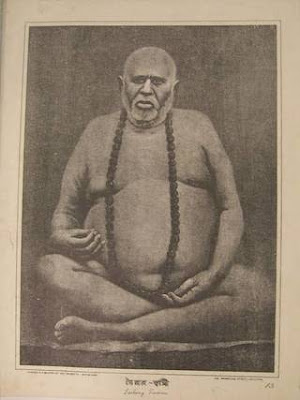Working Together ( 40 min. class)
April 23, 2009
I have reduced greatly the number of cooperative learning activities with my graduating students this year due to strong demands of the extended essay, the internal assessments, the mocks and the upcoming external assessment which are all individual assessments that are writing-based.
I have always flaunted the reduced to nil amount of behavioral issues I have in class, until I slowly saw the class breaking down into this invisible spirit of segregation and separation. It disturbed me, I also felt helpess knowing that I only have 3 weeks left and classes are technically over...
I finally decided to find the key students and talked to them individually in private, talk about their lives some more, their feelings towards the group as openly, freely and non-judgmentally as possible. Their observations confirmed mine, but one thing surprised me..
One of them attributed the separation to the ending of our cooperative learning activities in class. She said, " we did not put the tables together anymore, we were not required to sit in fours anymore, we were not shuffled into different partners anymore, the games have stopped, we don't get to speak much about our thoughts anymore nor get the chance to hear what the others say. We just wrote and wrote and wrote". The time pressure and the demands of the semester I felt lent itself to this, but today just before my 11th grade class, I thought of something...
This student repeatedly stated how fun and more effective it was for her last year for our class , when we had more simulations, creative projects, role-playing, treasure-hunting and the rest of the cooperative learning structures. Over and again, she talked about how she would just sit at the back now with a familiar friend because she is no longer required to work with a group. She said, " I needed to talk to others about what I've learned" and now I just have to sit and write
( Note: that is even when they were allowed to go around and ask questions from each other, but then everyone is busy burying their noses on their paper and trying to finish it on time). However, I would like to note that this is the student who feels she will pursue other avenues in career and that she feels she did not need to learn how to write these technical papers as to her narration to me.
On the other hand, in my other class, I had students saying that they loved the balance of individual and group work, the writing and the reading, with the movies and the games and the other structures. They also said they liked the balance of the topics from reflective issues to very technical ones. This is also the group who said ( about 85% of them) they wanted to pursue a career in Psychology.
I followed my heart and no longer my fears ( i.e. will it strengthen their writng skills?) .. And surprisingly when the mind stops grinding, the creative juices flow freely....I told my self over and again like a broken record that - " there is a way for this to work, there is a way for this to work"
Each group shared individually with a moderator and then at the end, I randomly assigned someone to stand from each group, establish eye contact to the other group and report the summary of the group's reply.
The activity started with, each one in the group talk briefly about thoughts that could interfere with them being completely present in class. I learned this from the book " The Artist's Way At Work and in Non-Violent Communication" It was unloading previous thoughts that they have carried with them in the classroom.*
( *Some of them talked about worrying about the weight of the requirements they needed to finish before the semester ends, some of them talked about thinking about the other extra-curricular activites they had to prepare for, one talked about her family's financial crisis occupying her mind and this one reply - quietened the class - he just broke off with his girlfriend )There seemed to be empathy, and his groupmates were less active and lively having him sulking in their table. In a way , it was being sensitive of them to him.
Then I had to briefly respond to their issues reminding them of the power of making choices and being in control of their thoughts and feelings. As well as the advantages of being in the here and now, without demeaning the value of pain and suffering. " When we change how we see things, the things we see, change"- was kind of the gist of my reply to the initial unloading.
Then we started....
I heard my 12th grader's voice in my head " we don't sit in fours anymore". So, I made the younger ones sit in fives ( there were 10 of them) and because they still needed to learn how to write an essay, learn how to organize their thoughts I thought...
All activities below started with each individual in the group sharing verbally what they thought and then discuss it as a group while a secrateary who also participates do the recording while another member moderates. ( They are timed for each set of round of discussion)
1. Sit in fives
2. Mix the groups in low, average and high levels of writing and thinking skills including attitudes toward work also considering the level of comfort they have with each other
3. Assign a moderator and a recorder of ideas and make sure each one gets the chance to talk, so it was either clockwise or anti clockwise
4. A question was given and then, a sheet of paper was provided for the first part of recording all pooled ideas together
5. Each generated their own thoughts as to how to answer the question, which was for the day, DISCUSS ETHICAL CONSIDERATIONS BEFORE, DURING AND AFTER A ONE-TO-ONE INTERVIEW.
6. As each one generated general answers on possible ethical issues, they then broke it down to before, during and after as prompts from me, though some groups already came up with that form of organization
7. When they were done generating general ethical issues, they went to the next level ( another round of individual questioning in a group) which was which ethical issues were best suited for before, during and after the interview.
8. Then, another sheet of paper was for the outline, they can do it in any form they wanted, mind maps, diagrams, flow charts or simply number steps.
9. Then the third round of discussion was to reflect on what worked in this structure and what areas of improvement they could do next.
10. The last part was for each one of them to cumulatively as a group -meta reflect. That is, to reflect in their own reflections, what were the advantages and disadvantages of having to reflect after a structure/activity.
11. Then they have to submit the 2 sets of papers that each group came up with and then I gave them the possible answers I came up with and see which ones they have included and which ones they have thought of and I have not thought of.
BELOW ARE TRANSCRIPTS ( in toto) OF THE SUBMITTED PAPERS OF EACH GROUP:
On Reflection
(on whether the structure influenced "efficiency", they were also given an open choice to discuss beyond efficiency but they had time-limit.)
GROUP 1
(+) Strengths of the structure (I don't have a name for it yet, say, "TABLE OF FIVE")
> more ideas, you get everyone's points and opinions
> organized
> much faster than writing it alone
(-) Areas for Improvement of the structure
> better knowledge of the topics
> have a little more time so we can write it doen in a more organized summary
(+) Strengths on Reflecting on the Reflection
> reveiws everything you've done
> learn from your mistakes
> gives your opinion of the activity
(-) Areas for improvement
> hurts our brains
> time-consuming
GROUP 2
(+)
> everyone contributed
> we learnt from each other's points
> everyone's opinion <-> discussion
> easier than the whole class giving suggestions
> Helped with revision on the evaluation part
(-)
> could have divided work systematically, due to time limit, we could not explore more ideas, pressured to answer faster
Meta-reflection ( Reflecting on the reflection)
(+)
> I t helps with proving for future discussing, then we do not have to blindly think of random useless points
(-)
> takes time to reflect
>

